- From Faith Current: “The Sacred Ordinary: St. Peter’s Church Hall” - May 1, 2023
- A brief (?) hiatus - April 22, 2023
- Something Happened - March 6, 2023
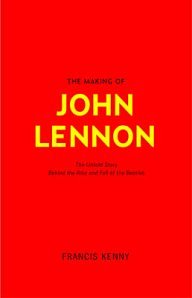
Now here’s a book for Dullbloggers!
After all the breath expended on the topic of John Lennon — a large cloud of it by the man himself — I’m dogged by the persistent feeling we’re no closer to finding out what really made him tick. But there’s a new book on Mr. Chief Beatle that approaches him from two new, and potentially very fruitful, directions: his hometown, and his relationship with Aunt Mimi.
Francis Kenny’s The Making of John Lennon is an “investigative biography” which attempts to untangle some of the knottiest strands of Lennon’s personality, and place the man in the Liverpool of his time. According to the book’s introduction (written by Bill Harry), The Making of John Lennon is “a carefully prepared examination of his early years, slowly examining the general picture that surrounded John’s life, rather than focusing on one specific aspect, wrapping the surroundings of the city, the family, the friends, the music and the events which forged [Lennon] into a whole.” Kenny’s a lifelong Liverpudlian of a certain age, so he should have a lot of interesting things to say in this regard.
But here’s the really interesting bit: Kenny heads right for the economic and class issues that most authors fudge — and that apparently drives the book straight into Mimi Stanley. In most Lennon bios, Mimi does exactly two things: play the sensible foil to Julia’s wild child, and drop bitchy, reverse-prophetic chestnuts like “A guitar’s all right, John…” Yet according to Kenny, “Mimi’s influence is… the key to John’s path in life and his creative output.” It’s a fascinating idea, and one well worth exploring.
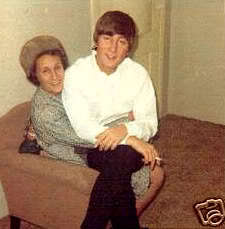
The Making of John Lennon…Aunt Mimi?
The key?
It’s specifically the tension between the conservative, almost parsimonious worldview Lennon clearly absorbed from Mimi (really evident in his 1980 interviews) and the wild, working-class pleasures of rock ‘n’ roll, that Making purports to address. The man who wrote “All You Need is Love,” not to mention “Woman is the Nigger of the World,” also could bust out a kind of back-fence bourgeois cynicism that always jars. People surmise it’s from getting screwed (Seltaeb or Klein) or Yoko’s influence, but it sounds too small town for that. The obsession with putting the other Beatles in their place, for example. During the early 70s fight, Lennon’s determined to make Paul and George come ’round the back.
Is there really any difference, how Lennon used it, between “artist” and “aristocrat”? Not to my ear. Yet I think he really did believe in equality, universal brotherhood, feminism, et al. Lennon was a contradiction in this regard, always knew it, and never really resolved it. Which is hardly a capital offense — therapists gotta eat, too — but what was a strictly personal issue in 1980 is now rather important for the rest of us, due to the Lennon Brand’s vast cultural footprint.
Just what are we saying with that Lennon t-shirt? Was Lennon authentically countercultural, even radical as is sometimes claimed — or was he really a well-mannered boy from the suburbs? Could he somehow be both out… and in? And if the person couldn’t, what about the icon? It’s one thing to get up in arms when right-wingers try to co-opt Lennon for causes that he almost certainly wouldn’t have approved of; but they can only do that because we’re not sure who he really was. (Because, maybe, he wasn’t so sure himself.) If The Making of John Lennon helps solve that, it’s a welcome addition to the canon.
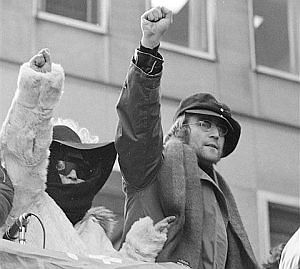
“You can count me out… in”
A secular saint
This morning, I saw that a boutique in the fancy strip of shops near my apartment has reprinted the lyrics to “Imagine” as their holiday window decoration. For a cultural icon of that magnitude, this kind of “investigative biography” is not only warranted, but important, and well past time.
The book’s website is here. Anyone who reads it, please let me know what you thought. If it passes muster, perhaps we could send some questions for Mr. Kenny. It’s an intriguing take on a ever-fascinating subject.
The Making of John Lennon by Francis Kenny. Luath Press, 288pp.



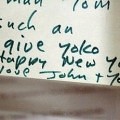

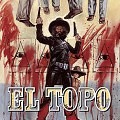
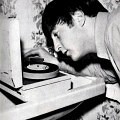
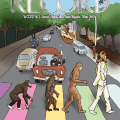

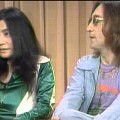
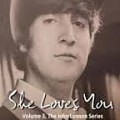
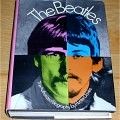

I didn’t think I would ever want to read another Lennon biography, but this one seems different. Is it more of a psychological profile than a straight biography? I am concerned about one thing though. I was reading some of the reviews on Amazon U.K. and one reviewer mentioned that Mimi’s treatment of John was disgusting. I don’t remember reading anything about her treatment of John as particularly bad, so I’m wondering what this reviewer meant. If this is accurate then my next question is who were Kenny’s primary sources for this information and how reliable were they? Aside from a strange story in Cyn’s book about Mimi repeatedly slugging John with a roasted chicken, I haven’t read anything that painted her in a bad enough light to warrant a word like ‘disgusting’.
A roast chicken?
Clearly a crime of passion. 🙂
Hi,
Unfortunately this was the case, Mimi was in Liverpool terms ‘bad news’. She held a deep dislike for working-class people and was essentially a uber snob, she claimed squatters rights of Mendips, when she saw the previous owners leaving this despite have already having a decent home of her own, Mendips being more prestigious. Her favourite terms for Paul and George was ‘common’. She stole John from his mother, the intention being to gain acceptance from her middle-class neighbours this ploy didn’t work and John became unwanted and surplus to Mimi’s requirements.
In later years on a visit by John and Yoko to Mimi’s home she berated John for being with ‘the poison dwarf’ this within earshot of Yoko and suggested that John would lose public support for marrying Yoko, just as (an apparent hero of Mimi’s) Edward Prince of Wales had for marrying American Wallis Simpson. The same Edward Prince of Wales lost his throne due to his marriage and was all but banished from Britain for his pro-Nazi views and declared that he wanted Britain to lose the war with Nazi Germany so he could return to the throne under Nazi rule — this is the politics of the woman who brought up John.
Some of the revelations brought out in the book might not sit well with some of John’s fans but everything is documented over 130 books, 60 websites, 360 citations. The book is an honest work from a Liverpool perspective — i.e. one who has full knowledge of the culture which brought forth John and The Beatles.
This is fascinating, @Francis, thanks for responding! Hope the book flies off the shelves.
I wonder where does The Making of John Lennon’ leave Mimi as portrayed in Lewisohn’s ‘Tune In’? I am looking forward to the comoarisons and discussions.
I think the most common example I’ve seen quoted regarding what a horrible person she is (bar the more general portrayal by Julia Baird) is regarding John’s dog Sally. I think versions of the story range from Mimi giving the dog away to actually having it destroyed, at least when I’ve seen fans discussing it. From Shout!:
I remember that, @Nicole! BTW, I met Julia Baird at The Fest for Beatles Fans in October — lovely lady. Her book is sitting here, glaring at me.
I posted my review here: http://theglassonionbeatlesjournal.blogspot.com/2014/12/book-review-making-of-john-lennon.html
Good review! Thank you for the head’s up.
Really Michael? A good review? The review is an unsubstantiated opinion. Picking cherries.
Francis Kenny presents stories and situations, mostly based on sources and then there are conclusions and explanations or considerations using psychological frames to link between what we do know about Lennon & his art, and his upbringing. As such the book is helpful and interesting. Dismissing it by mentioning what is missing, e.g. a quote from the notorious unreliable Beatles when talking about their lives and art, is not a good review, but a review.
@Rob, I admire your passion, but since I — unlike you and the reviewer — haven’t read The Making of John Lennon, I can’t responsibly express an opinion about it, much less weigh Kenny’s opinion of Mimi. But I read the review and found it well-written, so I commented in such a way as to encourage them to click through and see for themselves.
A roast chicken?
Clearly a crime of passion
Exactly!
Some thoughts on why a book like ‘The Making Of John Lennon’ is a worthwhile approach to the understanding of John Lennon and perhaps his art too.
.
Among fans and critics Lennon provokes adjectives and fantasies that are illusory reality – a world of illusions, so vivid, so persuasive, so ‘realistic’ that we can live in them as we take it for real. Yet it is a reality manufactured by the media, The Beatles, by economic stakeholders and makers of religious beliefs as they created events, staged for the express purpose of being disseminated by the mass media to an anonymous mass audience. (Boorstin, in Gould, 2007) Pseudo-events in a pseudo-world. A world this blog lives in too (we’re aiming for 100K hits isn’t it?). A world too immense to comprehend from our limited physical and sensory human reality, and that includes fans, critics and Lennon himself.
.
In this reality he is adored and deified. Fans believed him so much that they thought that to make love, war would or could be over, even though Lennon knew better than that, the world did not really change because of The Beatles. Power structures haven’t changed significantly, human suffering has diminished somewhat but more because of (temporary?) technological and economic progress and not because of the Fab’s charisma, ‘All You need Is Love’, music, meditation, romance or ‘Revolution’.
.
It is even worse, when Lennon expressed behaviors to distance himself from the old Beatles-reality, people of average or better intellect started to believe and converse that McCartney and Harrison as artists, their artistic output and as humans were not even close to the Chief Beatle, the deity, the man of revolution, of revelation and peace. Lennon’s attacks and the flagrant professional stupidity of folks like Norman and Wenner sullied the image of The Beatles and still today directs Beatles’ related discussion into artless dead-end streets.
.
Lennon says to David Sheff, days before he is killed, he was always stuck in this belief he had to fulfill dreams, his own, the public’s or other people’s dreams. He was clearly troubled by it, whether it was marriage to Cynthia, his lies about The Beatles’ suits, etc. Lennon defended himself by attacking and his aggressiveness was reason for McCartney for a few years after 1969 to steer away from the media because there was no way to keep it civil, maintain a proper level of dignity or not losin’ every conversational battle with John. John had a way with words and a meanness he could and would apply at will. My guess is Harrison and McCartney were smarter and more mature, reticent and realistic about The Beatles than Lennon, even though Harrison vented some venom too.
.
‘The Making of John Lennon’ is a book that might give a clue to an understanding of how Lennon saw the world (speculation), understanding better his behavior or frame it better, and it supplies food for thought about his artistic output. The book has arrived in a world in which ambiguity is a personal threat, any ambiguity the fantasy Lennon-world we live in can only be changed by a trustworthy, we come to appreciate, archivist who writes very well, and lives by the name of the apostle Mark.
.
The problem with many fans in their pseudo-reality is that they cannot believe the distinction between John, Paul, George and Richie Starkey as individual human beings and the group that made them famous The Beatles. The thing is, they could, most of us can’t, and I guess John had a problem doing that. He believed he was a Beatle.
In the early days of their career, let’s say at least up until early 1966, the four Beatles were truly aware of the madness of fame and mania and among themselves and in media-events in the public domain they could separate themselves perfectly well from Beatles-fame. Jonathan Gould (2007) makes a perfect case for this in Ch. 13 and 14 of ‘Can’t Buy Me Love’.
.
My guess is John lost that ability to separate himself from the public image of The Beatles a) when he found out they were either attacked (e.g. the 1966 Christ affair, the drugs, etc), b) was not in control of the record-buying public projections and c) when he took the performance art of Yoko so seriously he could not distance himself enough from himself in person from the act of performance, because performance art requires you to be involved fully – maybe it became a bit too personal for him.
Lennon the artist in the late sixties and early seventies wanted to break down barriers, okay let me state this in a nicer 60’s /70’s way, he wanted to transcend boundaries between art, entertainment and politics. To achieve that he had to expose himself and become an even more public figure than during the heydays of Beatlemania.
.
In the days of Beatlemania the boys could disconnect themselves with humor from all the mania, and still enjoy the benefits of fame and money. They were fulfilling their own dreams and ambitions. Of course many fans require from the Fab Four to fulfill their dreams, but at least until early 1965 I am not aware of any signs of the opposite.
From the moment John Lennon started deconstruct his public facade the tone of voice and content of his communications becomes increasingly negative about the beatleness of it all and the denial of it. John was having a hard time or unable to connect and disconnect at will his public, social and artistic role and personal life.
.
His ‘Beatles is over’ attitude on POB showed that he was tangled up in confusion about what was his’ and what is still ours. Maybe John had a problematic life after 1966 and mistook being in the business of making and selling music in The Beatles for being a Beatle. When the time came he wanted out of the oppressive myth and make music on his own, he apparently had to separate himself publicly from something that was never but separate from him, except maybe in his head. By distancing himself from The Beatles and the dreams publicly and in his art, especially on and after POB, fans could not but be convinced that John believed in The Beatles all the way, that he was a Beatle after all, and that Paul, George and Ringo did so too, or even worse, still do.
All this said and done, I do not deny or dismiss the meaning of being in The Beatles and being mates for over a decade and experiencing all this and more together, of course that does have a deep affect, especially when the awareness of separation sets in, as it did with Paul McCartney – but still that is something entirely different from mixing the public image with the image you hold of yourself.
.
Lennon wanted to separate himself from a past, and while being with Yoko he connected himself to the peace-message and became the disciple of peace, without ambiguity, for far too many people. In doing so he traded The Beatles for another, not only public identity, and again he made it personal, or so did the elite institutions of power.
His pr-story on peace was not always strong even though it affected the minds of millions of young people, including mine. With the proper marketing his art and peace-message could still do wonders today, to the minds of a younger generation, but sadly the caretakers of the Lennon-estate fail to do so.
.
After peace and politics John became the musician again during the Lost Weekend, which of course was not a lost but a successful weekend, because the output of recorded music is wonderful and vast. A fan of John Lennon or The Beatles should not be surprised that John was dismissive of that period and called it ‘lost’, that’s how John copes with life. I still don’t understand why fans and journalist lack the clarity of vision to dismiss these dismissals by John Lennon.
.
Getting out of public life, raising a baby, really(?) he came back with Double Fantasy and to me John Lennon confused private life and public life again. Some of his lyrics and the core message Elliott Mintz projected out were about living a mature life with a kid and being serious about it, and that we were all being busy living our lives while making plans.
.
I cannot but love the guy, he is not a fake, neither were or are George, Paul or Ringo. We should appreciate John’s never failing honesty, something Brian Epstein predicted, but be cautious to take it at face value because there is a perverse courting of risk and a continuous escalation of emotional denial of the past of self in the biography of John Lennon. Loss, rejection, neglect and sadness pervades John’s life, but he could not make these his own and grow beyond regression. He was a pro-peace campaigner but himself never for a longer stretch of time at peace.
.
My advice is to go out and get yourself a copy of The Making of John Lennon at your local bookstore, go f^#%# Amazon, and allow ambiguity to take over.
.
Having read the book, the next one to (re)read is Anthony Elliott’s ‘The Mourning of John Lennon’, a social and psychoanalytical approach of John Lennon’s biography and art.
@Rob, there’s a lot to chew on here, but several things leapt out at me.
Before I get to Lennon, I feel obligated to say that meditation is actually a form of technology, and that it actually does reduce human suffering, if used as directed. And there are techniques that address precisely the “what is real” question that you speak of. When one does them, one logically and systematically comes to some truths about how reality works and what it is — the self and separateness, or lack thereof.
I would argue that 100K hits on a blog is actual a real event (such as any event is real) — it is actions taken, quantified. What happens next — perceptions of popularity or lack thereof — is a pseudo event.
Along this same line, I think that people like Jann Wenner and Philip Norman are the opposite of stupid; I think they have, and will continue to, create perceptions that benefit themselves financially. To argue against them, one mustn’t underestimate them and the power of the myths they create.
The way I would say what I think you’re saying here is, as long as John Lennon viewed himself as a person, he was fundamentally sound; he was productive and reasonably happy and had the ability to resolve any of the emotional problems or old traumas that he had. When he began thinking of himself as a concept, as an icon — when he began thinking of himself in the same mythic terms that fans thought of him — he was in a terrible bind. A person cannot live like an icon.
Final thought is this: because John himself never had much peace inside himself, his peace message was fatally flawed. It was a tree without roots, totally externally focused — “you should stop fighting!” Which of course is true, people should stop fighting and we’d all be better off and who could disagree with that…but to use the obvious example, Lennon’s vision of a better world never, ever included him having less wealth or luxury. He felt he’d EARNED it, DESERVED it, believed that he was better than others because of it — and if anybody tried to take it from him, they have a fight on their hands. Most of us living under capitalism feel this way… and that’s one reason why War has not yet become “over”. We don’t want it, not under those circumstances. And neither, truly, did John Lennon.
He saw this flaw, and tried his best to work with it in himself; nobody can do more, or ask for more. But losing that kind of attachment and separateness seems to be a necessary precondition to creating a vision of peace that actually is peaceful, and not simply a craving for internal quiescence. (See: Martin Luther King and Gandhi.)
Francis Kenny comes across as an unfortunately typical Liverpool type – the leftwing Irish Scouser with a chip on his shoulder about the English, and a hatred of anyone who isn’t ‘working class’. Mimi obviously represents everything he despises about the English middle class, and his book is an attempt to show her as an evil witch, trying to keep John from the ‘vibrant, Celtic’ Liverpool life. I would advise American readers to take it all with a pinch of salt.
Ai ai ai, Dan, give us the facts, your sources. What specifically in the book leads you to this conclusion? And even if Francis were a left winger…
What makes a verifiable analysis by a Irish/Liverpudlian left winger less trustworthy than of a christian conservative US nationalist who believes their world-view should be anybody’s and international justice doesn’t apply to the US?
By the way, did you read ‘The Mourning of John Lennon’ by Anthony Elliott, and if so what are your thoughts? I wonder whether Goldman’s and Spizer’s biographies change your ideas about The Beatles and John Lennon?
Just to wade in here: I don’t think that’s a kind of thing you can source, @Rob — it’s too perceptual. But of course we all know that those kinds of people (and perceptions) exist, and are valid to a point. Like you say about Christian conservative US nationalists; I certainly can vouch for their existence, and feel their influence bearing quite heavily on my country’s history, but I’d be hard-pressed to give you a fact or source — more an accumulation of personal impressions and experiences that add up to an opinion on the zeitgeist. Which is the very marrow of historiography, IMHO.
Surely class tensions like @Dan mentioned have to be present in Liverpool today, and were even more prevalent back in John Lennon’s boyhood; so every writer has to address them — and most address them by not addressing them. Being an American raised in the Midwest and born in 1969, I can’t really speak to that aspect of the Beatles’ story. It’s a language I might not even perceive, much less understand. But it’s surely there, and that’s why Kenny’s book interests me — not because Kenny is unbiased, but precisely because he isn’t. He seems to foreground something that’s endlessly ignored in the Beatles story, and Lennon’s. And once we know that it’s just Kenny’s take, and know that as Dan says, there’s a contentious right/left worker/upperclass history there in Liverpool, then we can factor it in, without mistaking opinion for fact.
Michael you wrote: I don’t think that’s a kind of thing you can source, @Rob — it’s too perceptual. But of course we all know that those kinds of people (and perceptions) exist, and are valid to a point. Like you say about Christian conservative US nationalists; I certainly can vouch for their existence, and feel their influence bearing quite heavily on my country’s history…
.
History? Michael, really — only history? Check the curriculum of West-Point – the Taliban are less orthodox and less convinced of their God given right to whatever.
.
Let’s stay on the blog’s topic. I remember Paul’s on the edge-of-seriousness song for 9/11 concert ‘Freedom’. I thought that was worse than anything he could do, but having spent more than a few months working in the USA and a lot longer for US-electable candidates in various roles it didn’t come strange at all — and face it a lot of US-folks were willing to dwell on US-uniqueness and Bush-hunt ‘m down and Wanted Dead-or-Alive stupidity, most others were too scared and smart too speak up differently – the Dixie Chicks were an exception. I was actually genuinely shocked.
.
“This is my right, a right given by God
To live a free life, to live in freedom
.
Talking about freedom
I’m talking about freedom
I will fight, for the right
To live in freedom”
.
I was too dumb to even consider Paul would not ever seriously considered a war was a God-given-right. The effect of the lyrics and the anthem-like structure of the song and the way it was performed and rush-released were horrible, my idea of Paul McCartney fell apart, and I mean not just the artist.
Looking back from today 2014 the American response and Paul’s words olook even more stupid. Does ‘freedom to be an individual asshole’ as a Godgiven right constitute a higher Godgiven moral ground than where the IS caliphate wants to go? Or for that matter the US-friends in Saudia?
[ @2kdei Saudi Arabia beheads 87th person this year tinyurl.com/pn9373x ]
Recently I saw a little video snippet of Paul discussing the origins of ‘Freedom’with eric Clapton, and adding to that the context of why and how Paul McCartney performs on which he elaborated extensively in recent Q&A’s
.
http://www.rollingstone.com/music/news/paul-mccartney-the-long-and-winding-q-a-20140717#ixzz3NOOdOJZZ
.
http://www.paulmccartney.com/news-blogs/news/paul-and-lily-cole-discuss-hope-for-the-future-full-transcript
.
Paul wants his audience to have a good time, his performer’s intuition wants him to connect with his audience, and on 9/11 he saw the burning of the WT-center happening from one of New York’s airports. Apparently with Freedom he had the guts to touch the open nerve of the Americans and there was nobody to stop him – his creative problem all along since the days of The Beatles.
.
Your words on Kenny’s book (class tensions, unbiased/biased) worry me, Michael you have presumptions about the guy, without facts – an unhealthy approach, it undermines your credibility or that of the blog.
.
In my view it gets worse when you assume Dan is right… let him give the facts about Kenny Francis’ background:
.
(know that as Dan says, there’s a contentious right/left worker/upperclass history there in Liverpool, then we can factor it in, without mistaking opinion for fact.)
.
you and Dan really think that a verifiable analysis can be disputed by ignoring the methodology of the analysis and its outcome and instead focus on political convictions of the analysts. OMG. John Lennon was right ‘Nothing ever changed’.
.
Sorry for my not so native English
@Rob, I’m not sure I’m following you. What I’m saying is that class and politics are a huge part of the Beatles’ story, and Kenny should be applauded for bringing this factor to the forefront. Whether one agrees with his characterization of Aunt Mimi, or his conclusions as to how her tutelage of John Lennon manifested in his life and work, that’s up to each individual reader. Such stuff cannot be quantified, it must be a matter of interpretation, and as such is not “a verifiable analysis” — but remains hugely important in our understanding.
I think Dan gets closer to the book than Rob does.
As a working-class English type myself I recognise a hell of a lot in the book – particularly the people. And Dan’s right in that Kenny’s assessment of Mimi is unfair. Yes, she wasn’t the most loving and pleasant of women but she seems pretty similar to a lot of English mothers from that post-war period – she wanted better for herself. And why not? Probably for the first time, getting something better for yourself seemed entirely possible for the working class. Her snobbishness – while sometimes quite unpleasant – wasn’t that far removed from my own mother’s: she didn’t like me associating with ‘riff-raff’, hated that I spoke in the same thick Nottingham accent that she and her family did, wanted me to do well at school, looked down on the ‘common’ neighbours etc. It was a thing back then: to be seen as decent working class and apart from the hoi-polloi. Mimi just seems to be a part of all that. But with an extra level of unpleasantness. admittedly – probably borne out of insecurity.
The book itself is readable enough inasmuch that it flies by. But it’s not particularly well-written and has a hell of a lot of repetition: it’s almost as if he hopes that by repeating Mimi’s acts of snobbishness we’ll come to accept that they were somehow monstrous.
Freddie and Julia get off lightly, of course. They’re presented as fun-loving, free spirits – rather than as, say, lousy parents. Which isn’t to knock them. Interesting people don’t necessarily make great parents.
I don’t know, John came from a troubled background, had rubbish parents and ended up with an aunt who was stern, snobbish and lacking in the kind of imagination you might expect – or want – the parent of a genius to possess. And? Loads of British working class kids came from tough homes with tough, dull parents. John’s background wasn’t that dissimilar. I’m not saying it was great – just that it was relatively unremarkable.
I tell you what really struck me though: Kenny spends a lot of time telling us how Mimi desperately wanted John away from Julia and Freddie and his past life, and how she wanted him to be a symbol of her own middle-class respectability. She, apparently, tried everything: getting the social services involved, playing games with her dad and his living arrangements, writing lies to Freddie while he was in prison etc. And after all that – after she’s finally snatched John away and essentially adopted him – she allows him to keep his surname. In fact, she often referred to him as ‘Lennon’. Of all the things she could have done, changing his surname would have been relatively easy.
Overall: interesting and thought-provoking. But a bit fishy.
Hi all,
The author Francis Kenny has had his website updated.
makingofjohnlennon.com
Includes a video.
All the best
Alan J